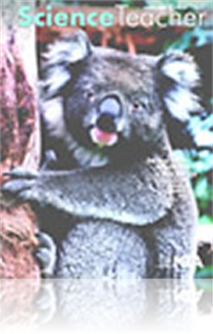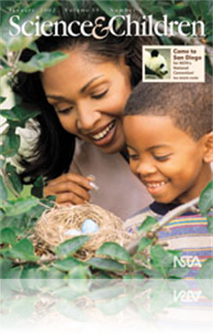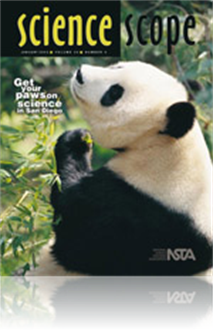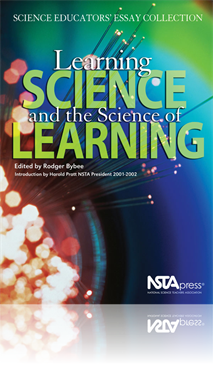All Resources
Journal Article
Drawing Out the Quiet Voices: Making science lectures accessible to all students
Lectures are still a key component of most science courses. During a survey of student groups who find lectures particularly challenging, a science teacher implemented “interactive lectures,” a method of conveying concepts, ideas, facts, and info...
Journal Article
Tech Trek: Technology-based planetary exploration
The lesson in this article is an example of how science educators can incorporate the Internet into the classroom....
Journal Article
Taking Science Dialogue by Storm
One teacher examines classroom discourse through a unit on tornadoes and natural catastrophes....
Journal Article
Science Sampler: The atomic dating game
This chemistry activity helps students visualize and understand how and why atoms combine. This concept is critical to a student's understanding of chemistry....
Book Chapter
How Students Learn and How Teachers Teach
In this chapter, the author explores the relationship between learning theories and teaching practices. It compares three features of scientific and educational theories, provides an overview of some historically noteworthy learning theories and the ...
Book Chapter
Assessment involves an ongoing investigation of student learning that influences teachers’ planning and instruction. Multiple assessment strategies should be used to provide feedback to students and teachers. Such strategies include questioning, co...
Book Chapter
Curriculum Reform, Professional Development, and Powerful Learning
The authors consider the important relationship between standards-based curriculum implementation and professional development. They begin by looking at the key recommendations about student learning and then discuss how curriculum materials can embo...
Book Chapter
Professional Development and How Teachers Learn: Developing Expert Science Teachers
Groundbreaking research on learning and cognition has produced many new insights into how people learn. These findings conclusively dispel the idea that short-term and isolated learning experiences can produce powerful learning. This is especially tr...






